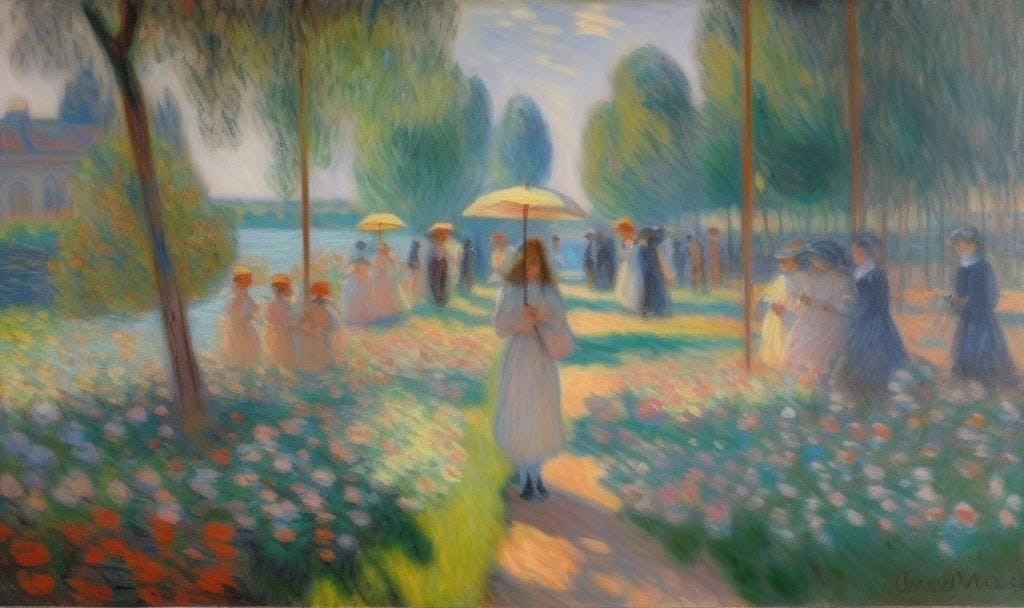Let’s start with what immeasurable means - the dictionaries say (if we mesh them together) - too extensive to be measured or known exactly.
So this basically implies that the education system is simplifying stuff in order to be able to measure. And when we know that life is complex it seems ridiculous that we are being expected to teach in a way that does not correspond with life. Despite the purpose of school supposedly being about preparing for life.
Measuring is about control.
If you want to control the quality of your baking then we measure the ingredients - but if you bake like me then I go by feel - I have an understanding of how the ingredients interact with each other, what sort of consistencies are needed etc. It does mean that what I produce has variabilities - but yesterday’s Lucia buns (sweet saffron bread) were amazing - but I admit they are not that amazing every time.
If we are only sticking to the measurable it means there is no experimentation - no new recipes so to speak.
The Original Learning Approach is not advocating to abandon measurements - because they come in handy - like when learning new recipes it is good to read what the measurements are before hand - sometimes following them exactly, other times adapting. The chocolate cake that I have been making my children since they were very young is based on a recipe for French chocolate cake - except I adapted the recipe to make it quicker (as a mother of 3 young children I did not have the time to start separating the egg whites and whipping them to gentle peaks to then fold in later) and I also increased the amount of dark chocolate and decreased the amount of sugar - it is a rich, dense fudgy cake that we still love (we made it yesterday in fact) - which has also meant that most chocolate cakes we eat elsewhere taste of sugar and not chocolate.
I just had a bake day - hence the connection to food.
What is interesting is that the opposite of immeasurable in the dictionaries include the following
limited
finite
definite
confined
restricted
measurable
bounded
circumscribed
superficial
And of course education is limited, because we don’t have time to teach everything, it is confined to what governments have approved in the curriculums, it is restricted by having to do exams (because investigating the interests of the children on the subject might mean not covering the facts they need to be measured well) and it is superficial - because the teaching is not about the children’s learning but about doing the job so that the measuring part of the child’s education can serve them well later.
There is also the word unmeasurable - which means we lack the means to accurately measure it. I think intelligence is something that cannot be accurately measured - because there is a tendency to only measure one or a few aspects of intelligence - and, really, the reality of intelligence is that it is as immeasurable as love and play - yet the school system has decided to take a slice of the intelligence cake and measure it to make a judgement about the whole cake despite each slice being different. And when we are teaching in a way so that this one slice can be measure we are neglecting the rest.
This is why play is so important in education, why it is the warp threads of original Learning that all learning and teaching is woven into - because we can’t teach everything a child needs to learn in life, but play can extend the expanse of the known. In play children and youths can experience a wider range of possibilities, and teaching can help them focus and understand aspects of that, which then can be used as keys to unlock and understand further experiences and knowledge.
It is in the combination of measured, unmeasured and immeasurable that we can find optimal learning flow. That combination will depend on the maturity of the brain - the younger the brain maturity the more play is needed to make sense of the world - because focus (another element that is impossible to measure) is something that is needed to learn things that we are not interested in, but need as a human in the community we live in - focus is evolves while at play. Expecting an immature brain to focus on uninteresting just because the body is of a certain age will result in measurements that do not reflect the true intelligence of the child and will instead make them feel incompetent.
Is competence measurable? Do good grades in exams mean we are competent in the subject or competent in memorising or competent at exams or all of them or ?
So the questions are
How do we measure the importance of being loved?
How do we measure the importance of care in early childhood?
How do we measure the importance of play throughout childhood?
How many points do we give a child for learning to walk/communicate/dance/draw/sing/make music/play/explore/discover and more?
How do we measure patience/joy/self-regulation/focus/curiosity/wonder?
How do we grade the ability to listen - truly listen?
How do measure what children know - not what they remember of lessons?
How do we measure risk - when it is dependent on the abilities, knowledge and experience of individuals?
Does measuring something risk minimising it’s value? Or risk limiting what it is or could be?
Should we be measuring change? How a child learns - because learning is changing? But would such measuring mean we limit? Would we value all changes? And who or what system would be making decisions about the worth of all these different changes?
What is the real purpose of school? The real purpose of the early years?
What should it be? And can that be measured?




